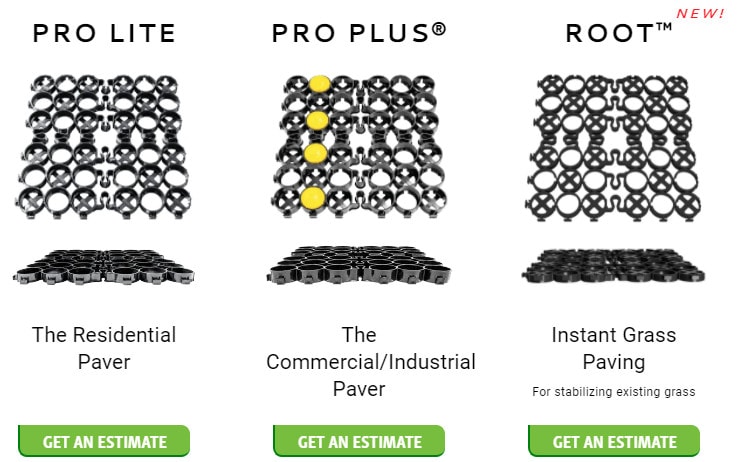Did you know that a large percentage of roads in America are unpaved? These types of roads can be found almost anywhere, but they present a unique set of challenges when it comes to maintaining them over the long term. Unpaved roads produce a lot of dust, for instance. This dust is easily blown away by wind, wears down the road and can even cause incremental amounts of damage to the vehicles that kick it up as they drive.
Road Dust Control Solutions
Dust on gravel roads can not only cause cosmetic damage to the vehicles that drive on them, but if you’re responsible for taking care of the road you could actually incur fines because of it as well. There are numerous reasons why loose dust on gravel roads can be a problem, but fortunately, there are also a wide variety of ways to address this problem as well.
Here are 6 ways you can go about solving the problem of dirt road dust control:
1. Windbreaks
Dust itself isn’t so much the problem as is what happens when the dust is blown away by wind or passing vehicles. Preventing wind from blowing dust on a roadway can be a great start to your dust control strategy. Installing windbreaks like hedges, plants, fences, or berms is a good start.
2. Spraying Water
Dust mitigation can also be achieved through spraying water. Wetting the topsoil of a road or driveway prevents it from blowing away in the wind. This is a good dust palliative for humid areas, but in dry areas, it doesn’t last very long. Plain water can be used for this process as well as water mixed with another type of chemical adhesive or oil. Water mixed with an additional coagulant will typically perform a bit better than just plain water.
3. Gravel Roads
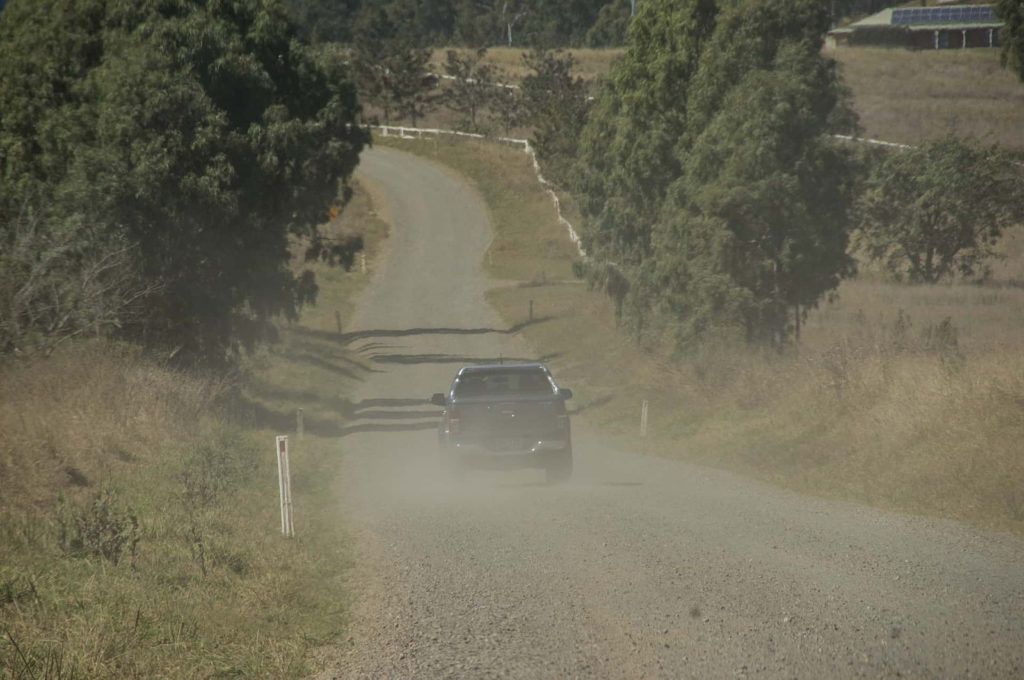
Gravel itself can also be a solution to dust control on construction sites, in mines, on unpaved roads. Adding gravel to the top layer of soil on a road gives the road a hard surface which can act as a buffer between the wheels of vehicles and the road itself. This is not a long-term strategy for road dust suppression, however, because gravel needs to be constantly anchored to the road surface with soil adhesives or aggregate mixes. Gravel, depending on the hardness, can become pulverized and turn into dust over time, adding to the problem. Frequent maintenance is required with a gravel only solution.
4. Reduced Vehicle Speed
This is probably the easiest method to implement. Reducing the speed limit will immediately lower the amount of dust kicked up by traffic. Even lowering the speed limit just a few miles per hour can make a big difference when it comes to dust control.
5. Salt
Salt is one of the best road dust control products available. Lignin Sulfonate and Calcium Chloride are two of the most popular unpaved road dust control products. These salts are mixed in a 35% solution and applied directly on the unpaved road.
They work by soaking up water from the air, thus keeping the top level of soil damp enough to prevent it from turning into dust. When it comes to road dust control products, salts like these two are some of the most effective options. They do come with environmental concerns, however.
6. Permeable Pavers
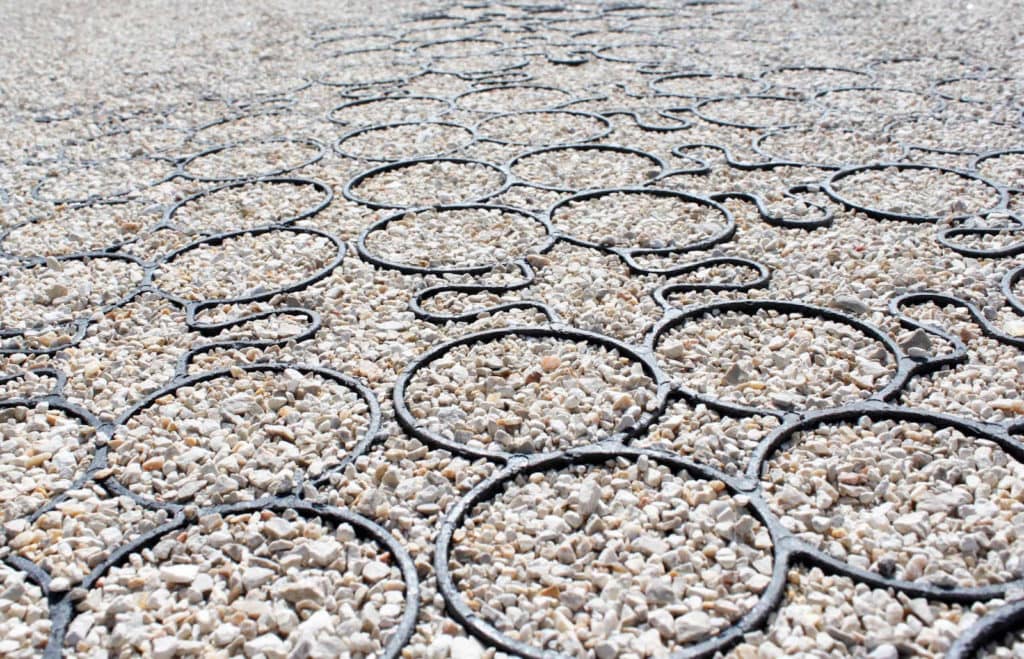
A more permanent alternative to common road dust control products is a permeable paver like the kind offered by TRUEGRID. These pavers work by locking gravel into place underneath them, effectively eliminating dust and preventing the gravel underneath from becoming pulverized.
All you need to do is fill in any low spots and level the road with gravel before having the paver installed over the top of the road. Once locked into place, the road will not kick up dust, and it will also be able to safely handle stormwater runoff as well, thanks to its permeability. This is one of the best long-term options for dust control on unpaved roads because it eliminates the need for reapplication of harmful chemicals, liquids, vapors, and more. The cells of the pavers prevent pulverization of the gravel fill and eliminate dust.
Permeable pavers also prevent ruts from developing, stop the movement of gravel, stop mud from forming, and offer better drainage.
Stop Buying Gravel Road Dust Control Products
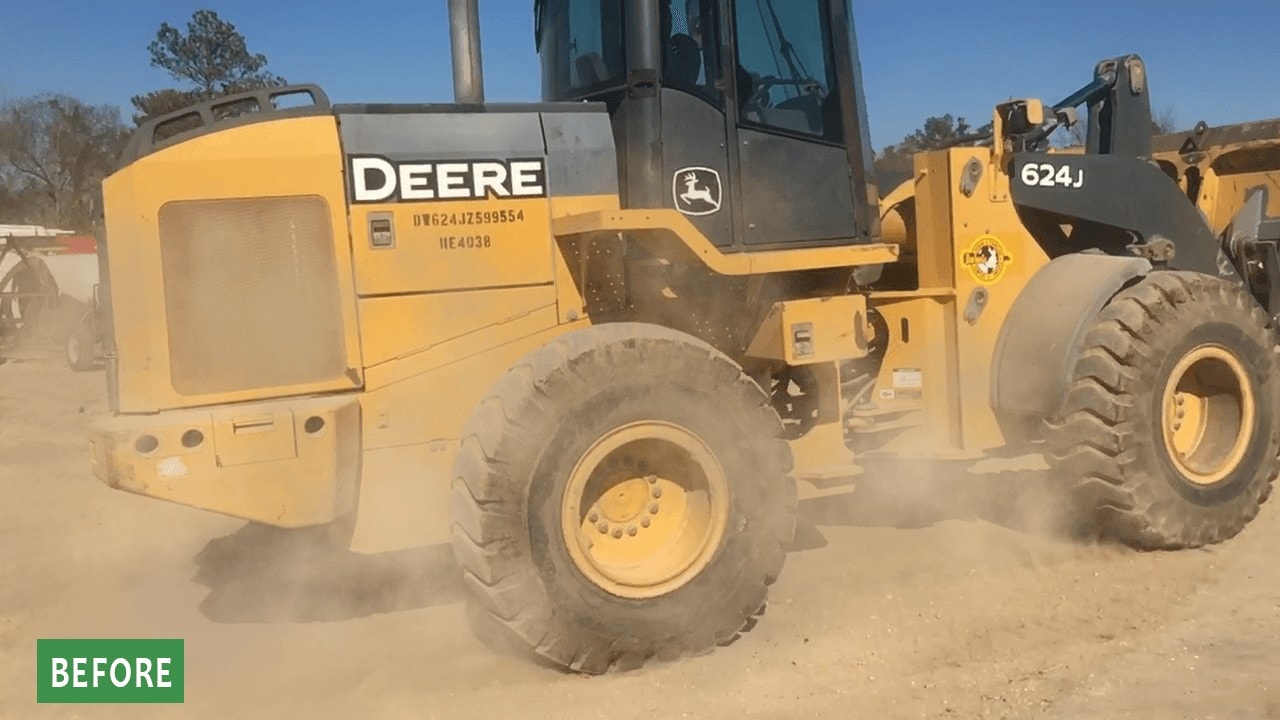
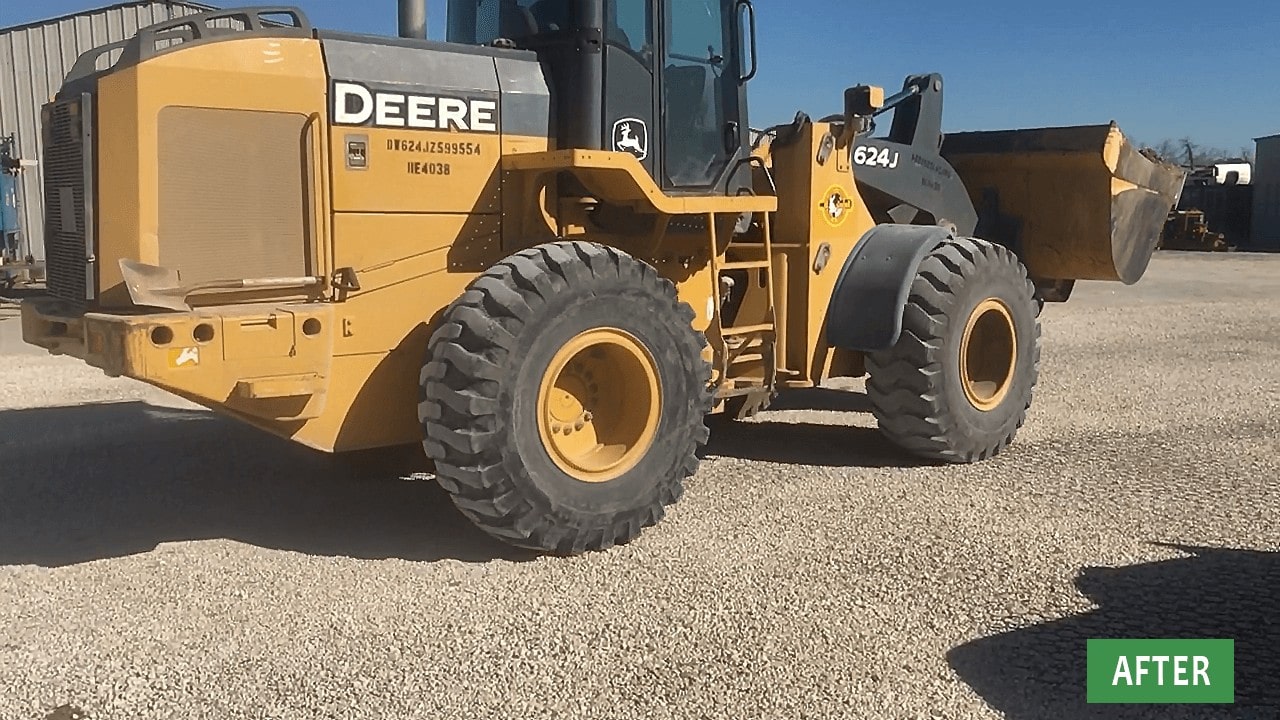
Rather than continue to purchase and apply road dust control products like salt and/or treated water, why not apply a one-time, permanent solution? Whether you want to maintain a regular road, a driveway, or some other type of area that will see a lot of vehicle traffic, there’s no better choice than a permeable paver.
Salts, water, and other chemicals for reducing dust on dirt roads can be effective in the short-term, but they require constant reapplication. Lower speed limits and windbreaks are also somewhat effective, especially when combined with other methods, but they too fall short in terms of long-lasting protection. When it comes to a permanent solution to controlling dust on your road or driveway, you can’t do any better than a permeable paver.
Dusty roads can do damage to vehicles and even incur fines, and dusty driveways will cause your vehicle to require more frequent car-washings at the very least. If you want to not only treat, but eliminate dust on your road or driveway, you need something that can get the job done once and for all.
By installing a permeable paver over a leveled, gravel road, you will lock that gravel into place and prevent it from becoming pulverized, turning into harmful dust. Minimizing and treating dust can be done through a variety of strategies, but only permeable pavers can keep dirt roads safe and drivable for years to come.
Contact TRUEGRID for more information on controlling road dust.
